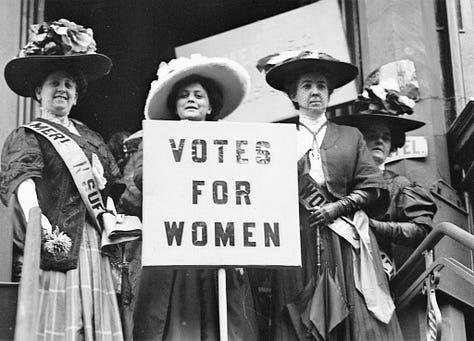Narrative Sneak Peeks: How to increase public support for ending the exploitation of animals
Our latest research findings uncovers a new persuasive narrative!
At Animal Think Tank we've been exploring which narratives are most effective in building public support for ending the exploitation of animals. In our latest study, we surveyed a representative sample of nearly 2,000 people across the UK to see how different narratives shape their views on animal rights and freedom. Here are some key findings that stood out…
Support for Abolition is Higher Than Expected
Support for the potential abolition of animal exploitation is already fairly strong. When asked, one in four people agreed with the statement: "I would support a law which protected the rights of all animals in not being harmed, exploited or killed—even if it would mean that humans could no longer use animals for their meat, milk, eggs, or other body parts."
Similarly, 45% of participants agreed with the statement: "It would be better if society did eventually stop using animals for human benefit altogether (e.g. food, entertainment, clothing)."
Personal Stories Make a Difference
One of the most striking findings was the power of personal testimonies. When participants read stories where individuals shared their own experiences and transformative journeys toward understanding animal freedom, their attitudes shifted significantly. These stories led to an average 6.18% increase in support for abolition, with some messages boosting support by as much as 14%. This shows that sharing our personal stories and connecting on a human level can resonate deeply and inspire real change.
Here's an example of one of the messages that involved a person's direct experience, which increased support for abolition by 10%:
"I remember the first time I met Bella. She looked at me warily through the bars. She was only young, but she'd already been through so much in her short life. Her transformation from a fearful, trembling bag of bones to a joyful, trusting family member has been incredible to witness and experience. The thing that surprises people the most when I tell this story is when they realise Bella isn't a dog, she's a pig..."

Connecting Animal Freedom to Broader Social Progress
Messages that framed animal freedom as part of a larger movement for social progress also had a strong impact. Narratives that linked animal freedom to other social justice causes—like women's suffrage or civil rights—were particularly effective. Participants were more likely to see animal freedom and rights as a natural continuation of social progress, boosting support for ending harmful practices against animals by up to 12.7%. This correlates with previous research that we've done that also found the social progress narrative really persuasive.



Highlighting Animal Abilities and Sentience
Messages that focused on the intelligence, emotional depth, and unique personalities of animals also generated positive responses. When people were reminded of animals' abilities—like solving puzzles, forming bonds that last a lifetime, mourning the death of their loved ones—they were up to 10% more likely to support abolition compared to those who didn't encounter such messages. Again, this supports previous research that we've done that found an animal abilities narrative increased pro-animal attitudes.



Reimagining 'A Good Life' for Fellow Animals
While it's encouraging to see that messages about social progress and animal abilities remain effective in shifting public opinion, our latest research has also uncovered a promising new narrative. This narrative, centred around the idea of 'A Better Good Life', invites people to reconsider what it means for fellow animals to truly thrive.
It starts with a story that challenges the common misconception that farmed animals live 'good' lives. Here's an example of the message that resonated strongly with participants:
“I once believed that farmed animals lived good lives—until I visited a farm. Seeing the cramped, stressful conditions first-hand shattered that illusion. I remember a mother pig in a farrowing crate, looking like she'd given up on life. I thought about how she’d never get the chance to roam freely or even raise her children. She deserved so much more.”
This story encourages us to see other animals as individuals with their own needs, desires and families, not as commodities. It goes on to challenge us as a society:
“It’s our responsibility to respect and protect the lives of all animals. Whether it’s the newborn calves taken from their mothers, animals used in lab experiments, animals going mad in zoos, or those whose lives are cut short in slaughterhouses, they are all being denied the freedom to live as they choose.”
The emotional impact of this message (and wider narrative) is clear. When participants were presented with this message, support for abolishing harmful practices against animals rose by 14.1%. This significant shift suggests that the vision of a world where all beings—humans and other animals alike—are free to live a truly good life resonates deeply.

Conclusion and key takeaways:
This research shows that moving people beyond an animal welfare/cruelty frame (i.e. that harming animals is wrong and animals suffer immensely) and into an animal abilities/thriving frame (i.e. that other animals are unique individuals, that we share many similarities and values, that we should all have the freedom to thrive etc.) can increase support for ending the exploitation of animals.
An animal abilities narrative also helps frame the narrative of ‘a good life’ in a way that challenges a welfarist interpretation of it - a narrative which the industry has heavily co-opted. This shows real potential for us reclaiming the narrative of ‘a good life’ on our own terms that is truly reflective of what our animal cousins want and desire.
Framing animal freedom as part of our progress as a society can really help bring down people’s barriers about this issue and see it as something positive for society, rather than through the lens of something that is going to negatively impact their life. But bear in mind that Animal Think Tank’s research so far indicates that while linking animal freedom to other human freedoms in a social progress context can be beneficial, directly comparing animal exploitation to other human struggles - and particularly comparing speciesism to other harmful -isms like racism and sexism - can have backfire effects that reduces support for our issue. So we need to take care when making comparisons/linkages with other movements and issues.
Coming soon…
Animal Think Tank’s next research study is focused on image message-testing. You’ll be the first to hear about the results of our findings right here…






Amazing work! Can't wait for the full report.
When you say some messages increased support by X%, I worry that people might interpret it as *percentage points*.
i.e. a 10 percent increase from 15% is 16.5%, a 10 percentage point increase from 15% is 25%, which are obviously big things!
I generally find that when we're talking changes from 1 percent to another, people generally assume percentage point changes, rather than percent. Might be good to clarify this in the post!
Could you post a link to the study, please? Thanks for your important work.